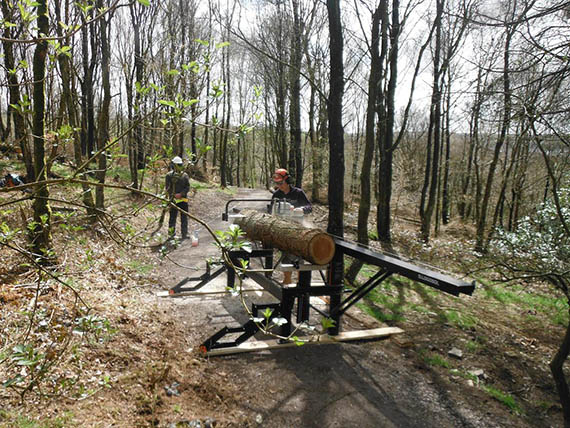Northern Forest Projects and Partner Stories
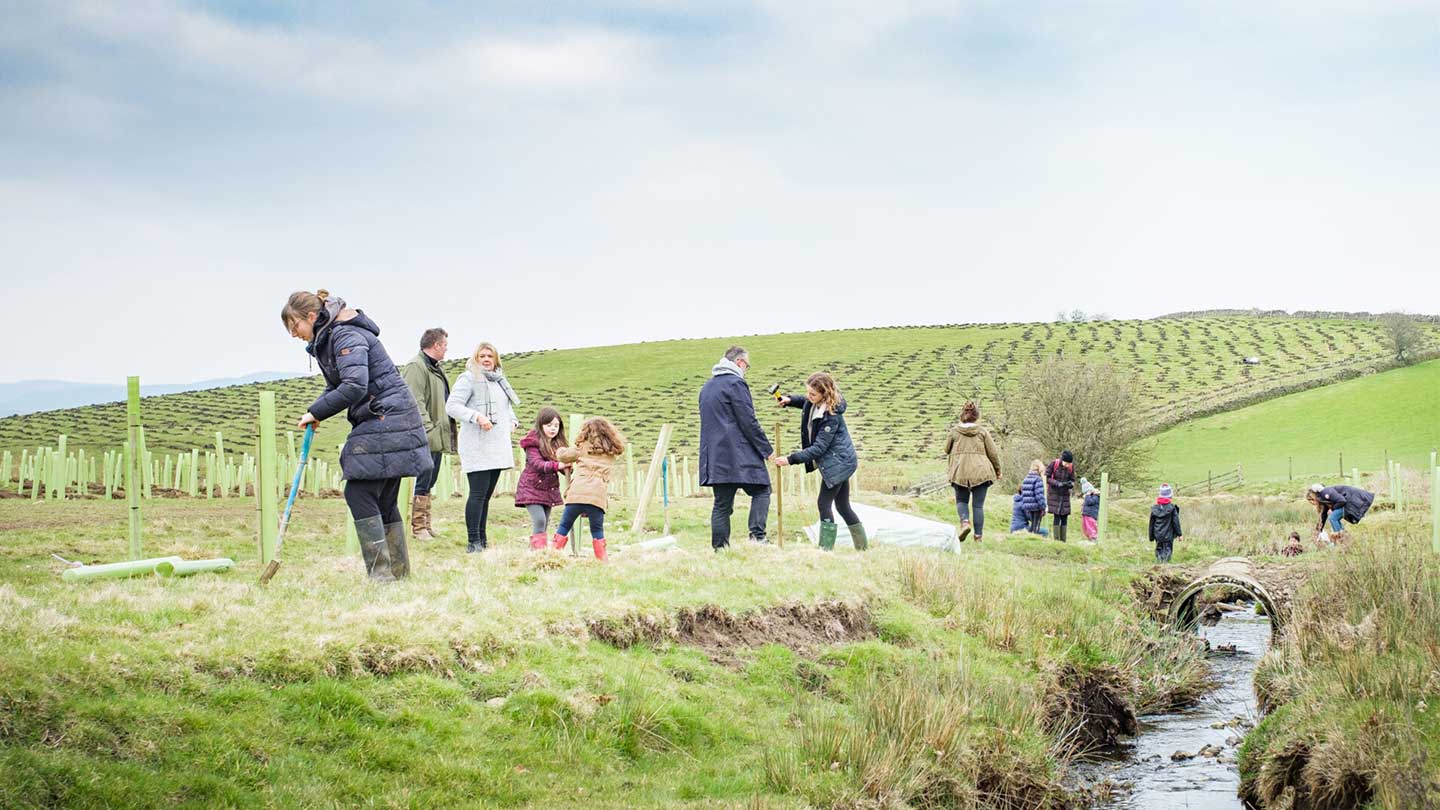
England's largest new woodland creation scheme in 2021
Location: Broughton Sanctuary, North Yorkshire
Partners: Broughton Sanctuary, White Rose Forest, Craven District Council and the Forestry Commission
The 2020-2021 planting season marked the start of a large-scale rewilding and natural regeneration project, with 230,000 native trees being planted on a 160-hectare site.
Explore how the new woodland at Broughton Sanctuary is having a positive impact and helping the White Rose Forest's community forest and the Northern Forest grow.
Fostering long-term resilience and building a future for biodiversity
Location: Smithills Estate, Greater Manchester
Partners: Greater Manchester's Community Forest, City of Trees
In order to help Smithills Estate remain resilient in the face of changes and provide a home to biodiversity we are ensuring that the right trees are planted in the right place, and the right management practices are undertaken.
Explore how the Estate is being transformed for nature and people alike, providing a haven for wildlife, while retaining it's productivity for tenant farmers. Learn about the planting activities, the work to combat the spread of disease and the use of pioneering solutions to maintain the moorland and help stem flooding.
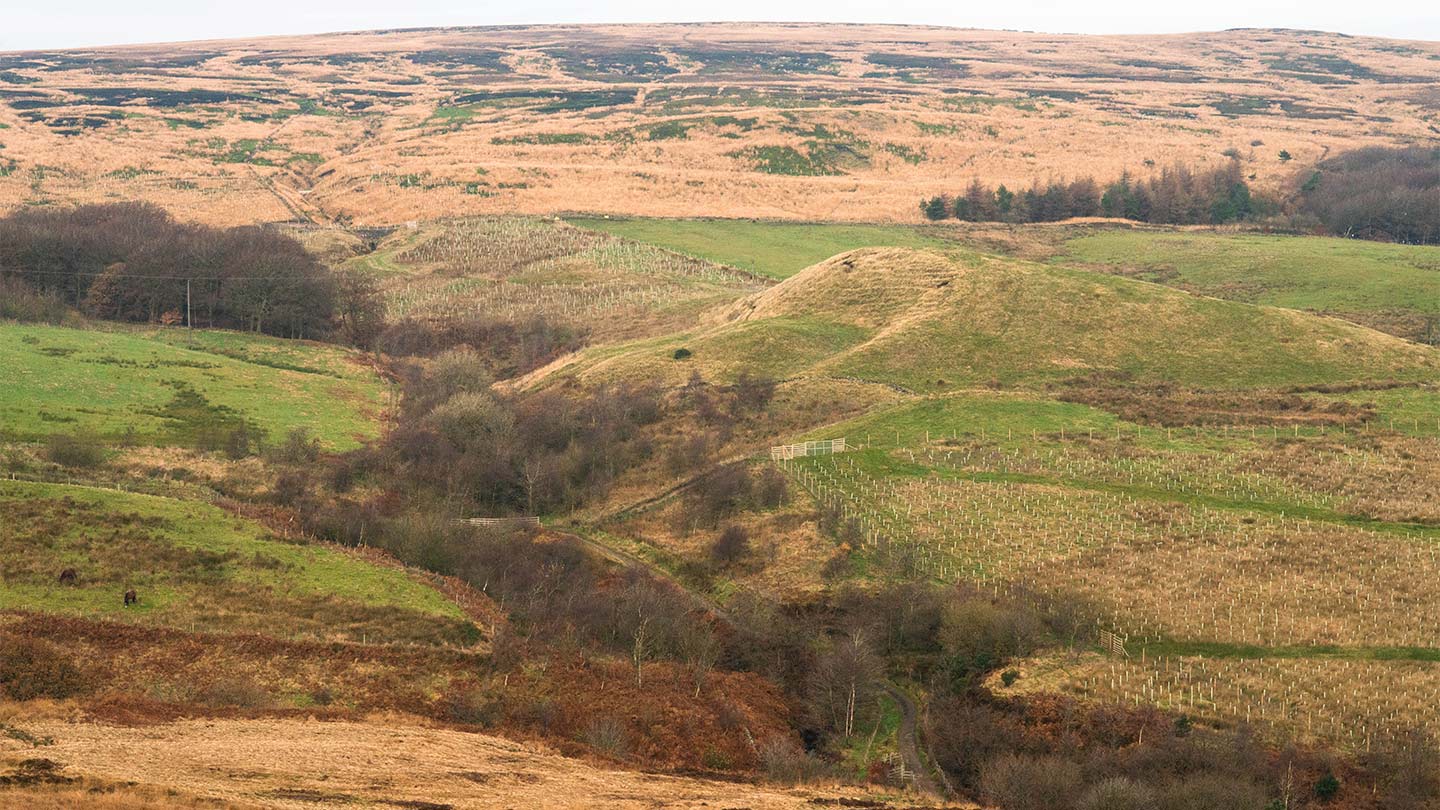

Maximising the potential of the planning system to increase tree and woodland cover
Location: East Riding of Yorkshire, Kingston upon Hull
Partners: Humber Forest, East Riding of Yorkshire Council, Hull City Council
Together, the East Riding of Yorkshire and Kingston upon Hull is recognised as the least wooded area of England. With only 2.2% of land currently wooded, the area lacks the necessary tree cover to deliver the range of environmental, social and economic benefits that can be derived from woodland.
Humber Forest, East Riding of Yorkshire Council and Hull City Council worked hard and thought innovatively to secure funding from various partners. As a result, in the last five years they have planted over 80,000 trees, incorporating a number of community-based planting events, and over 12km of new hedgerows in both urban and rural areas. Not only does this help to build community spirit, it also improves health, image and wildlife, reduces air pollution and fights climate change.
Mab Lane Community Woodland
Location: Stockbridge Village, Liverpool
Partners: Liverpool City Council, Forestry Commission, Riverside, and The Mersey Forest
West Derby suffered from a lack of quality green space. However, what it did have was a 25 hectare area that had become misused and mistreated.
In 2008, The Mersey Forest, with support from other partners, secured the funds to transform two large and disused playing areas into a usable green space. Community consultation days were held to help decide what to do with the area and hundreds of local residents volunteered and helped to plant over 20,000 beautiful trees. New pathways for cyclists and walkers were created, designated areas for family picnics were set up and timber structures were designed by children from local schools.
The woodland opened in 2010 and is now being used by local residents and primary and secondary schools for sports and outdoor lessons. House prices are on the rise and local businesses are more likely to move to or stay in the area. As a result of this project West Derby is becoming a more desirable place to live and work.
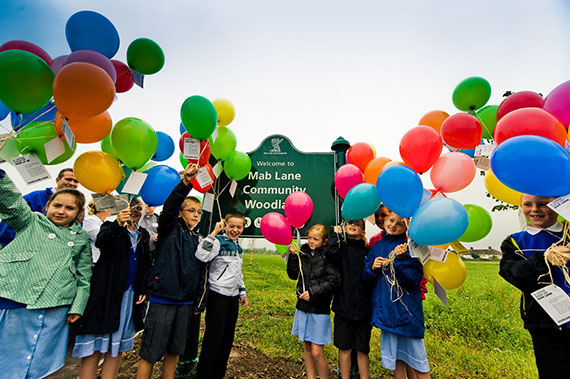
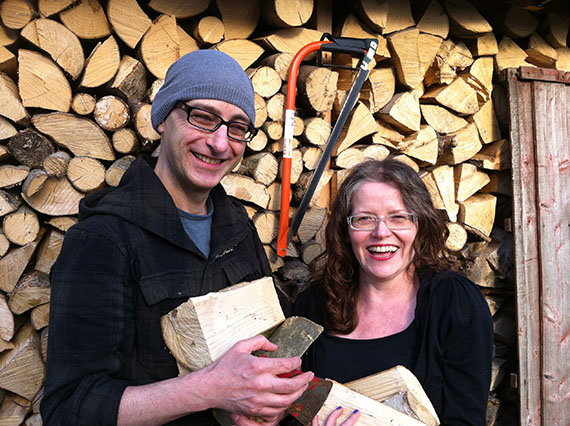
Wood allotments
Location: Merseyside
Partners: The Mersey Forest, Friends of Anderton and Marbury, Cheshire
West and Chester Council
Wood allotments is a scheme developed in The Mersey Forest that enables woodland owners to engage local communities and manage their woods at the same time.
The concept is simple. Local wood burning stove and fire owners pay a small fee to the landowner for the chance to harvest logs from carefully marked trees within a young woodland. They get fresh air, exercise and a locally sourced renewable fuel, while the woodland receives important thinning to ensure its future health.
Following a very successful pilot with Cheshire West and Chester Council and Friends of Anderton and Marbury, many more local authorities are now developing woodland allotments of their own. In addition, The Mersey Forest team has developed an online hub for wood allotments in the region, woodallotments.com, where potential ‘allotmenteers’ are able to browse existing allotments, contact the landowner, or suggest where they would like to see new allotments.
Tree planting for flood management
Location: Upper Calder catchment
Partners: Treesponsibility, Environment Agency, Woodland Trust, Suma, Calderdale Council, Slow the Flow Calderdale, National Trust, Yorkshire Water, Pennine Prospects
The SOURCE partnership was established back in 2010 with community activists and long-standing White Rose Forest partner, Treesponsibility. An experienced and well-oiled community tree planting group, they reached out to other groups and organisations in the Upper Calder Valley to inspire a genuine community approach to catchment management.
They aim to minimise the risk of flash flooding in the Upper Calder Valley through appropriately sited tree-planting and moorland management; treating damaged land and controlling erosion; improving the quality of the River Calder; undertaking educational activities; and encouraging volunteering. And they do all of this so that people of all ages and from all walks of life become aware of the value of our rivers and uplands.
Since Boxing Day 2015, Treesponsibility has planted over 15,500 trees and nearly a kilometre of hedge with the help of 1,200 volunteers, many of them children from local schools.
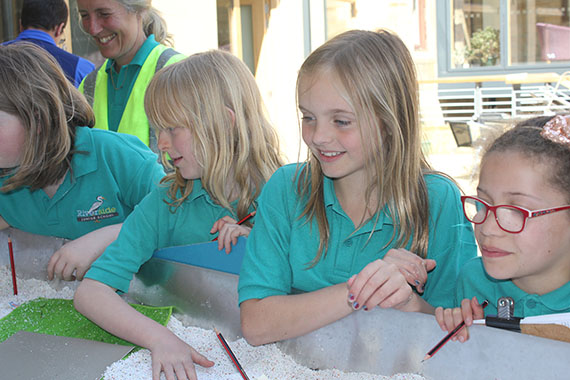
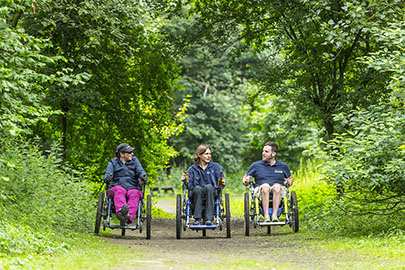
Improving woodland accessibility for people with physical disabilities
Location: Huddersfield
Partners: Woodland Trust, Nationwide Building Society
Experience Community, near Huddersfield, wanted to improve access to woodland for people in wheelchairs. The team wanted everyone to be able to come into the woodland together and get involved in range of activities, no matter what their age or ability.
Experience Community received a support grant of £9,583 to carry out much-needed improvements on site. These have included replacing a gate with a Radar key gate (meaning it can be opened and used by people who use wheelchairs) and improving footpaths on site, which can become quite boggy and overgrown.
The results have been incredibly positive. People in wheelchairs are now able to participate in conservation tasks and have spoke of the difference it has made to their mental and physical health, and also of the joy of being able to get out into the woodland and enjoy being outdoors.
Cheshire Rural Biomass (CheRuB)
Location: Trafford, Cheshire
Partners: The European Agricultural Fund for Rural Development, Department for Environment, Food and Rural Affairs, The Mersey Forest
With the price of fossil fuels constantly rising – particularly for those living in rural areas – wood fuel systems provide a modern, reliable heating system alternative to their gas and oil counterparts. The systems are carbon-neutral, and in certain cases have been proven to reduce carbon emissions by 90% compared to electricity-powered equivalents.
The Cheshire Rural Biomass project helped people and organisations to benefit from wood-fuelled heating systems. The project trained both operators of wood fuel systems and existing heating engineers in modern wood fuel systems. The programme installed biomass boilers of three varieties across key locations in Trafford. These were a batch-log system at Trafford Mill, a wood pellet-fired boiler with a district heating network at Trafford Mill, and a wood pellet air heater at The Grange Farm. Five heating engineers were part-funded to take a conversion course from gas and oil systems to wood fuel systems. 25 participants also took part in an Easy Deployment training course.
By installing these biomass boilers The Mersey Forest and partners were able to create a localised supply chain, in turn stimulating local economies.

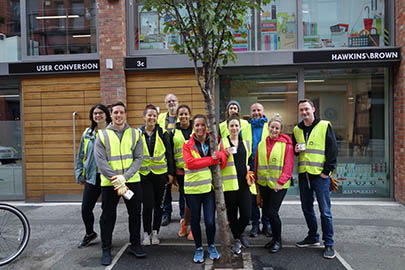
Improving wellness and wellbeing through Citizen Forester
Location: Greater Manchester
Partners: City of Trees; The Oglesby Charitable Trust; Trafford Countryside Management Partnership; The Whitworth Art Gallery;
Citizen Forester offers people the opportunity to voluntary get practically involved in their local public realm greenspace and helps to provide the people-power needed to maintain and develop the urban forest (green infrastructure). Citizen Foresters give their time to undertake neighbourhood based, sociable, practical conservation and greening activity. Outcomes fall within the 5 Ways to Wellbeing (nef, 2008): connecting with others; being physically active; learning something new; taking notice of nature; giving something back (citizenship).
Citizen Forester is accessible and open to all: local residents, corporate business groups, people seeking vocational and/or therapeutic rehabilitation, students, schools, people living with dementia.
Enhancing woodland management in Lancashire
Location: Hyndburn, Lancashire
Partners: Woodland Trust, Nationwide Building Society
The Prospects Foundation in Lancashire has been carrying out conservation work for over 20 years. Working across Hyndburn, it discovered that there is little woodland in the area over 60 years old. And of that, very little is being actively managed.
They aim to adopt woodland from the county council, bringing it back under active management to allow native species to thrive. Non-native species, such as larch, are felled to create benches, waymarker posts and bird boxes… all of which are used on the sites to enhance biodiversity and the overall woodland experience.
The group, which is heavily dependent on volunteers, received a support grant of £9,149. This means they can continue their work on numerous woodlands in their community, carrying out woodland management, education and training.
